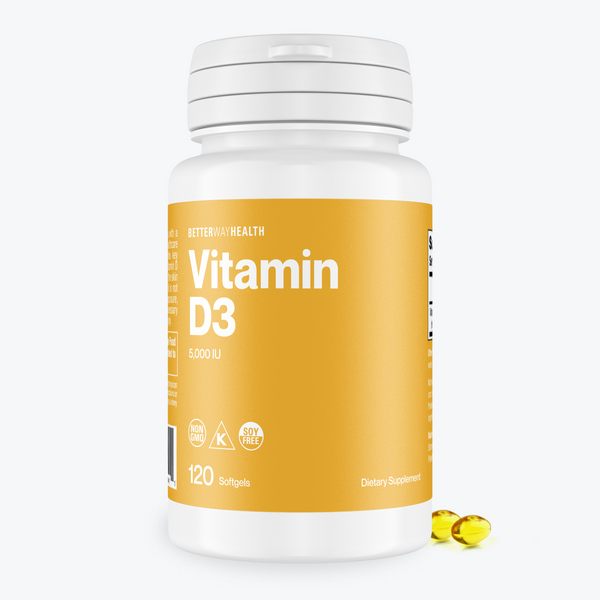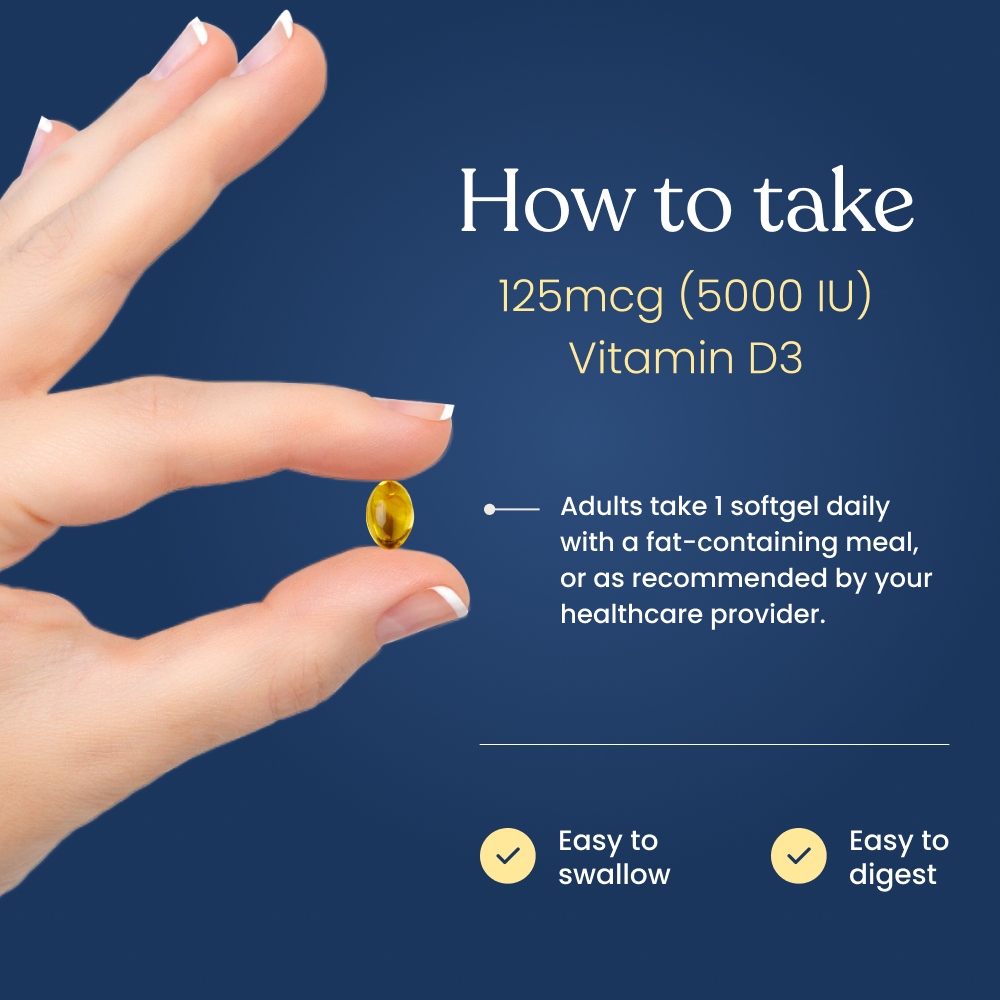We proudly partner with Bright Hope to help break the cycle of poverty in Zambia.

Miguelina S.
Verified buyer
My vitamin D levels have gone up tremendously since I started taking your D3!!!
Our highly absorbable Vitamin D3 in a 5,000 IU softgel
Our highly absorbable Vitamin D3 in a 5,000 IU softgel
Scientifically proven to enhance several key functions in the body—like mood, energy, and immunity.
120 softgels | 5,000 IU
Supports immune function
Supports muscle and bone health
Optimized for effectiveness
Coupon
Couldn't load pickup availability
60 Day Guarantee
Free US Shipping $75+
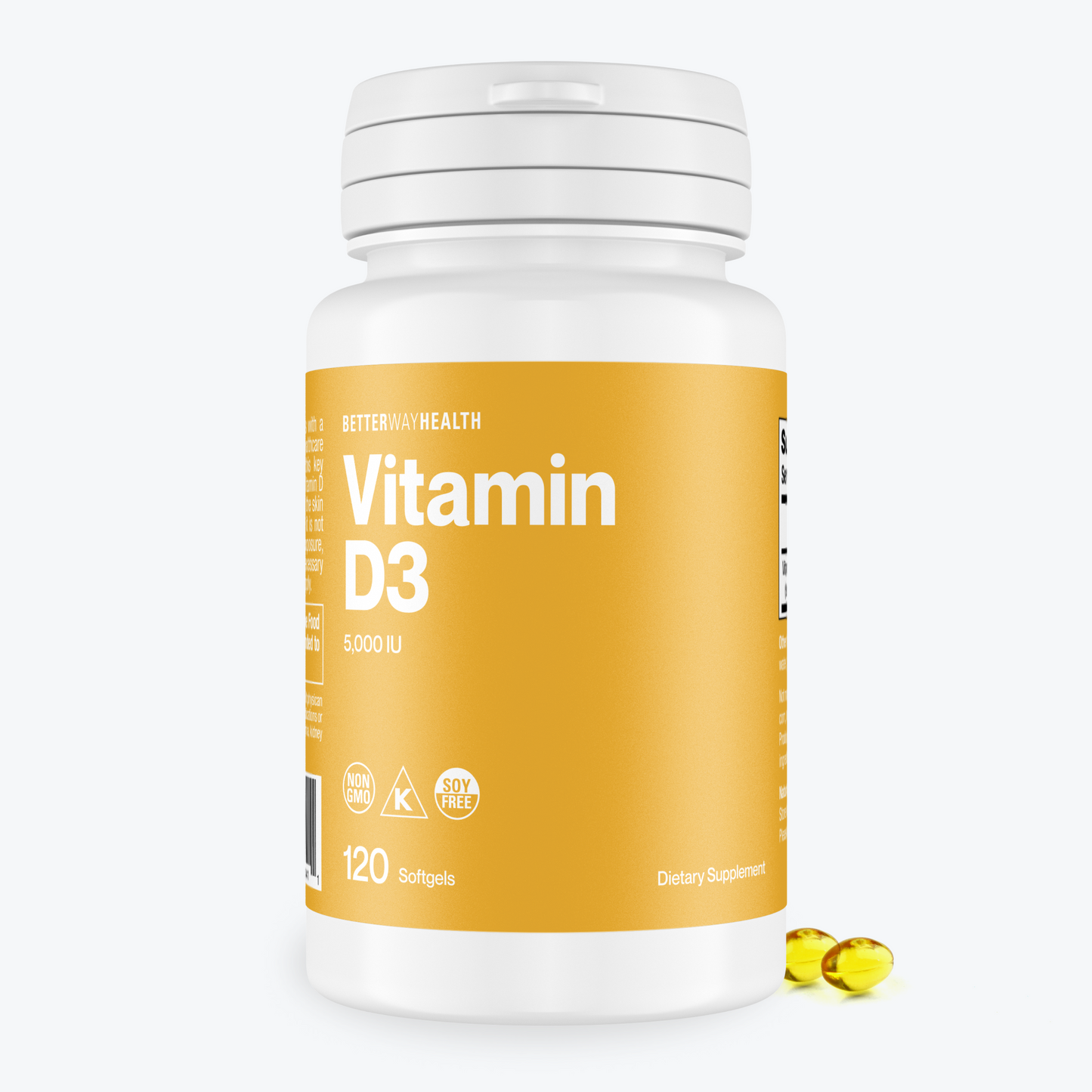




Real people who LOVE our Vitamin D3
These are just a few of our thousands of awesome customers who have been
impacted by Vitamin D3!
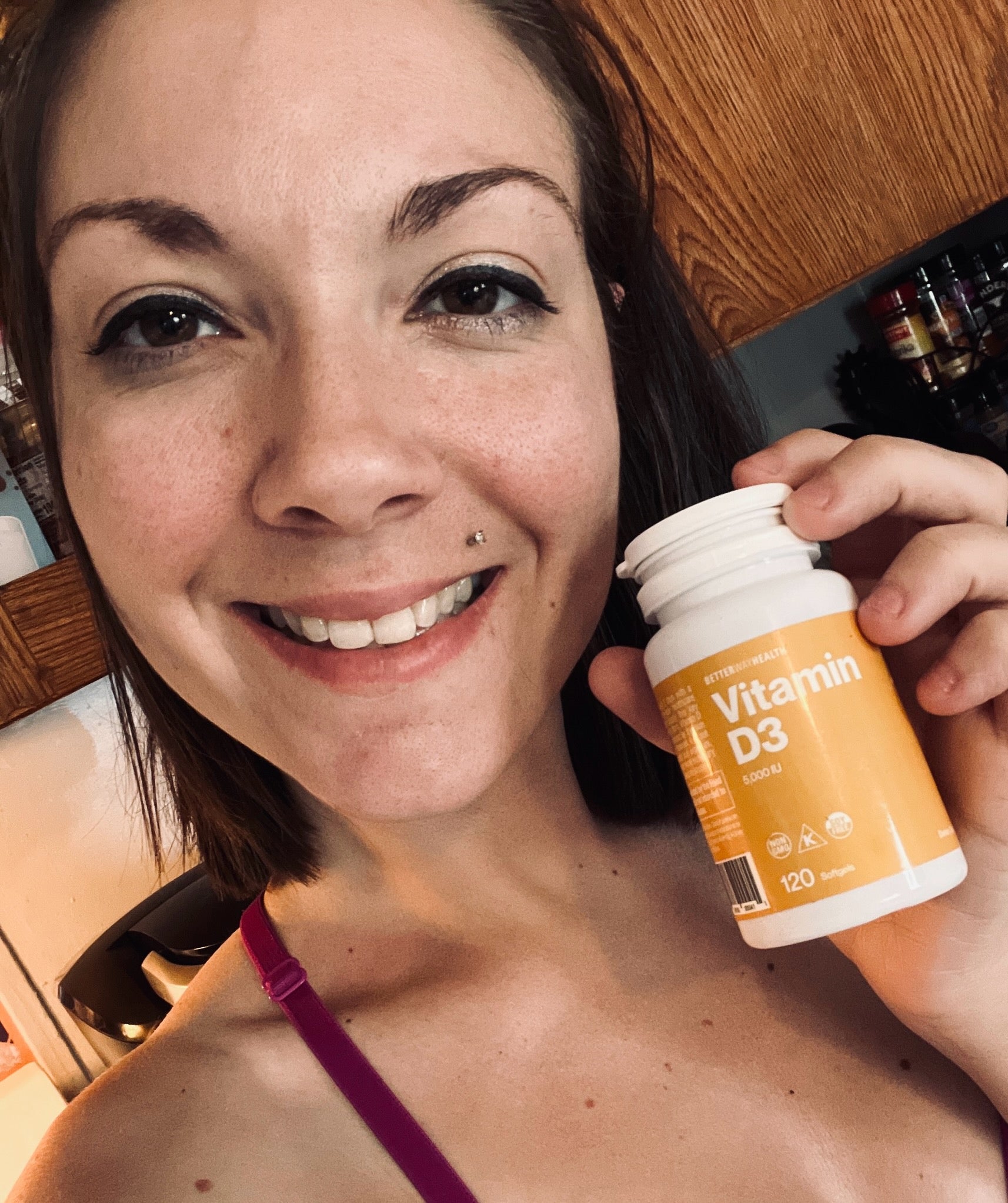
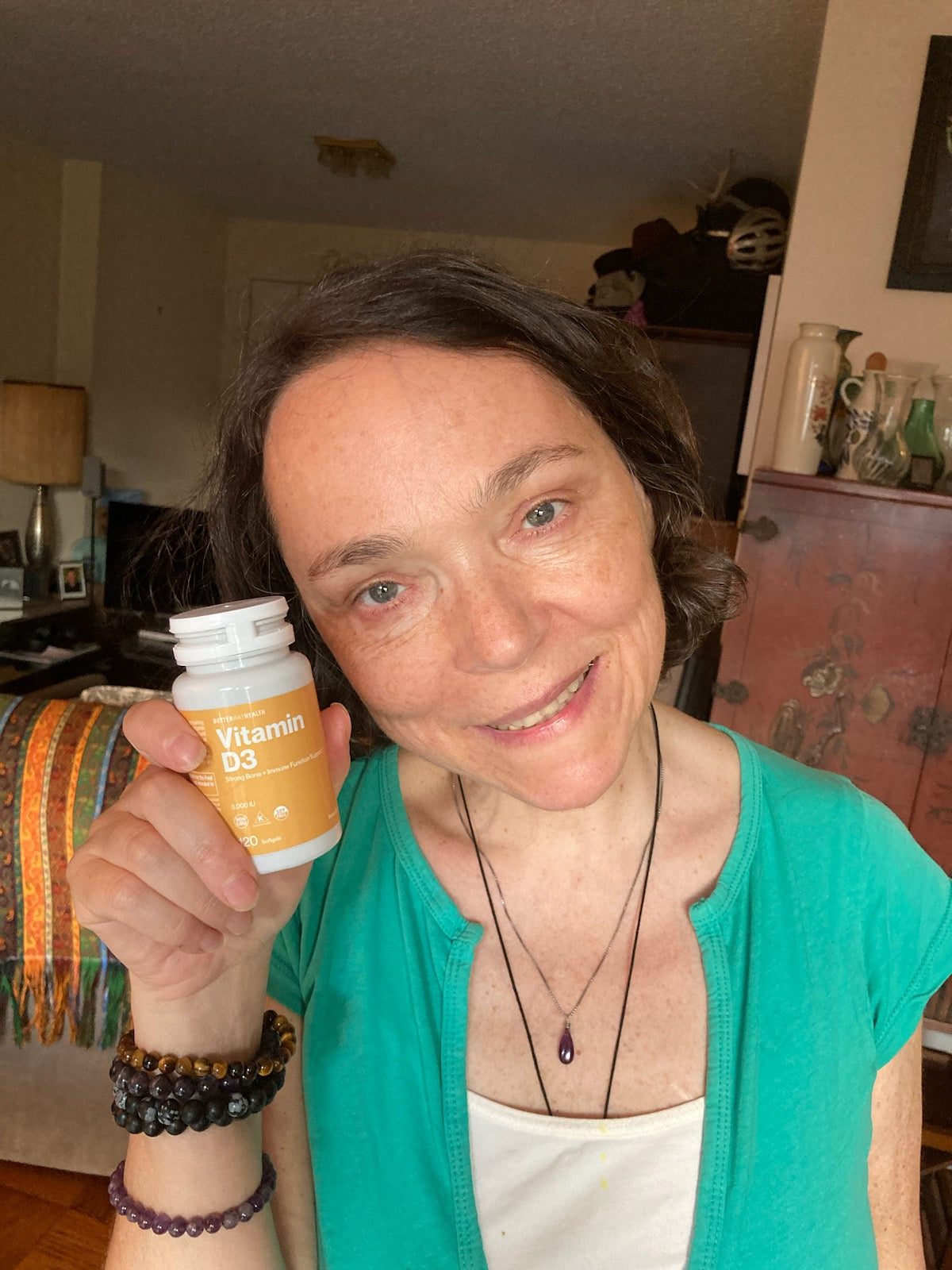
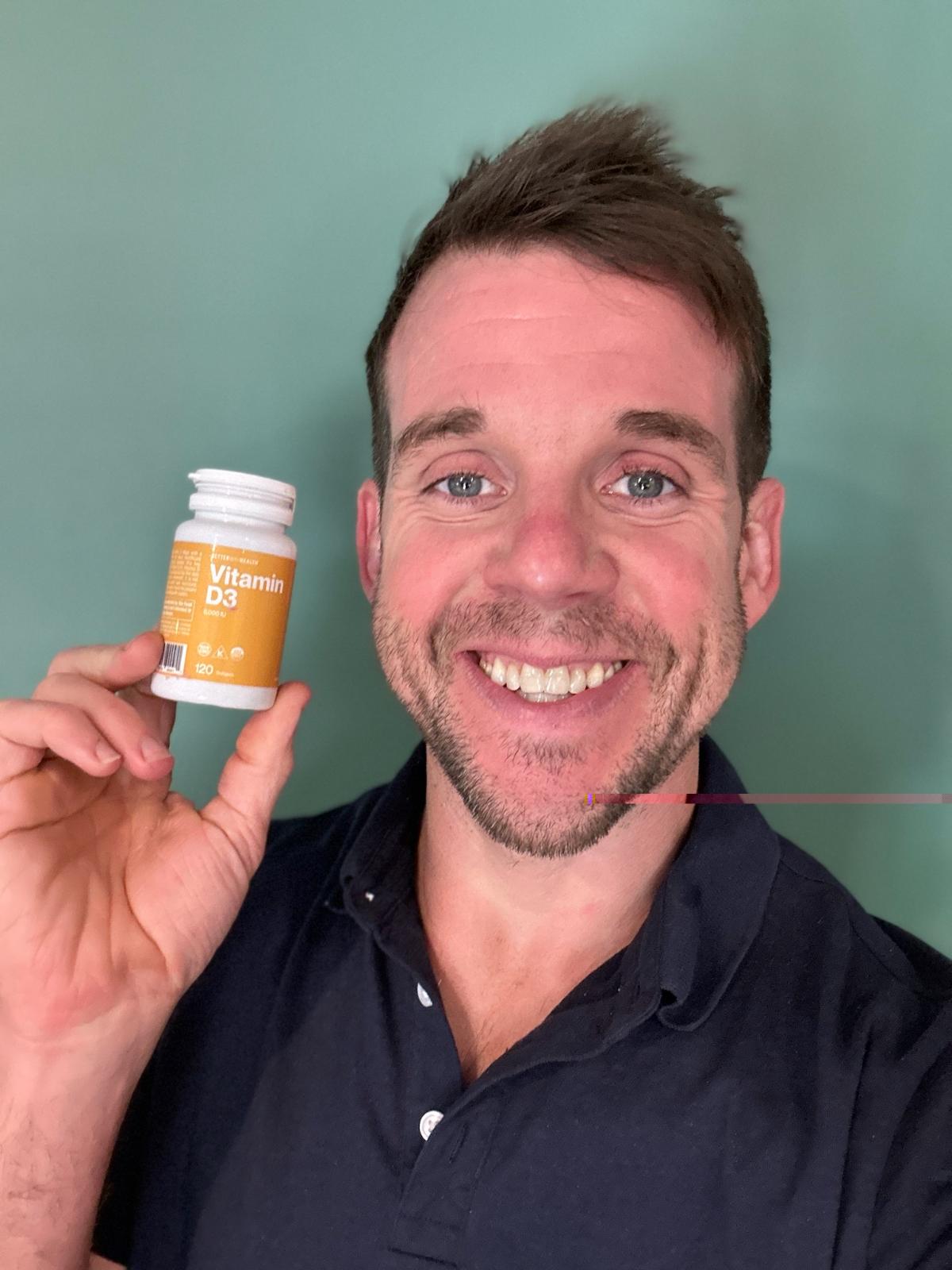
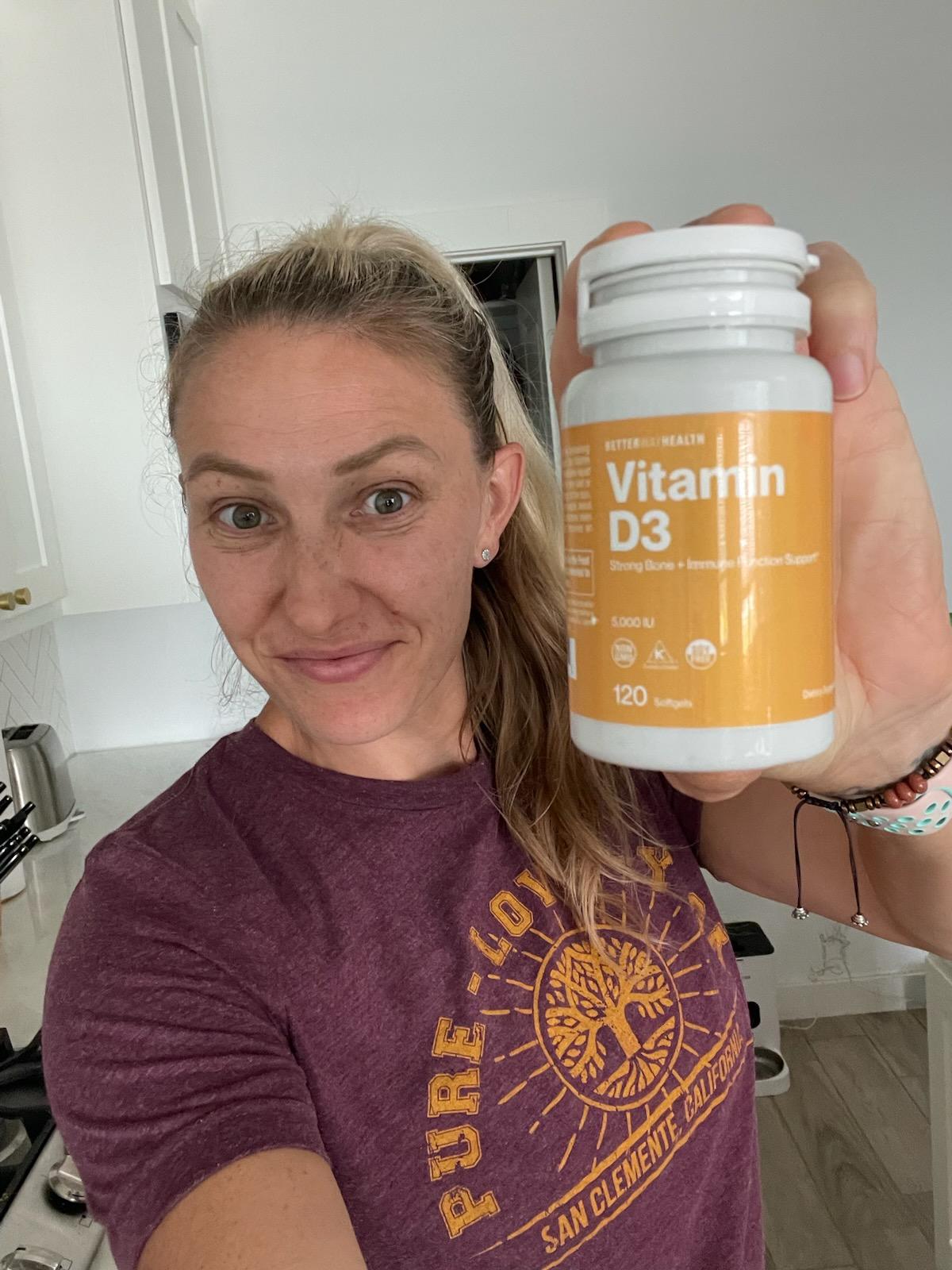
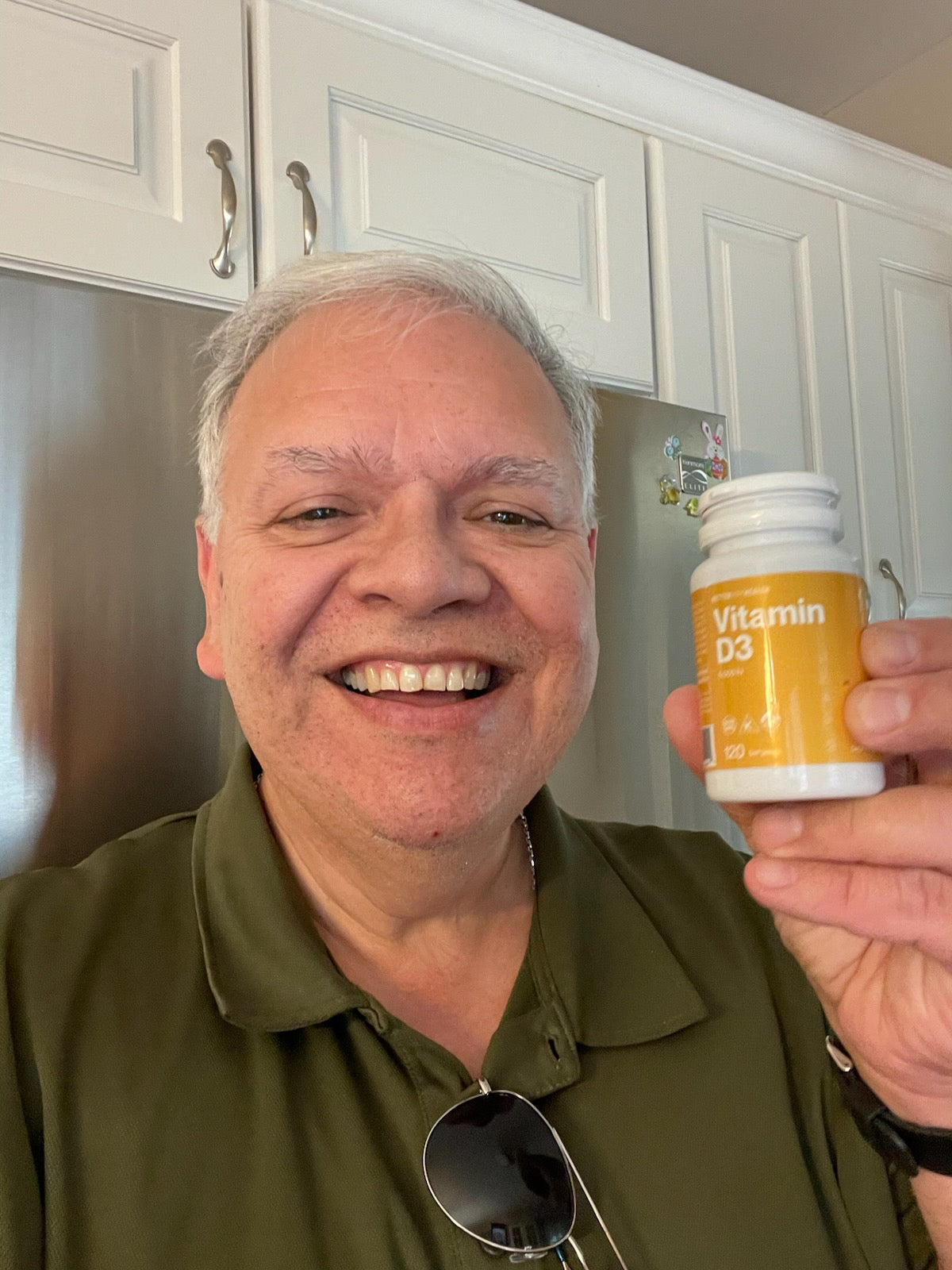
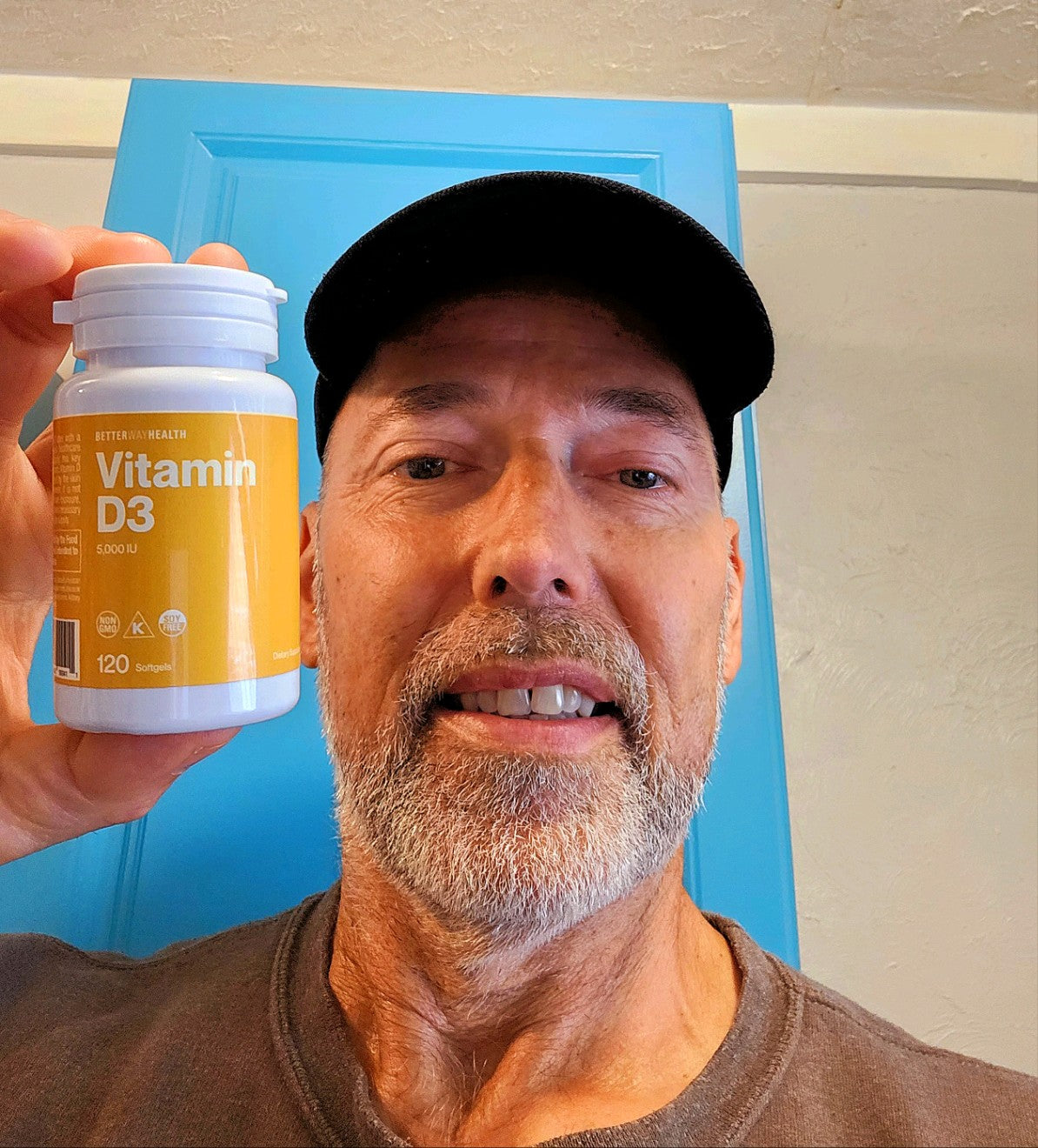
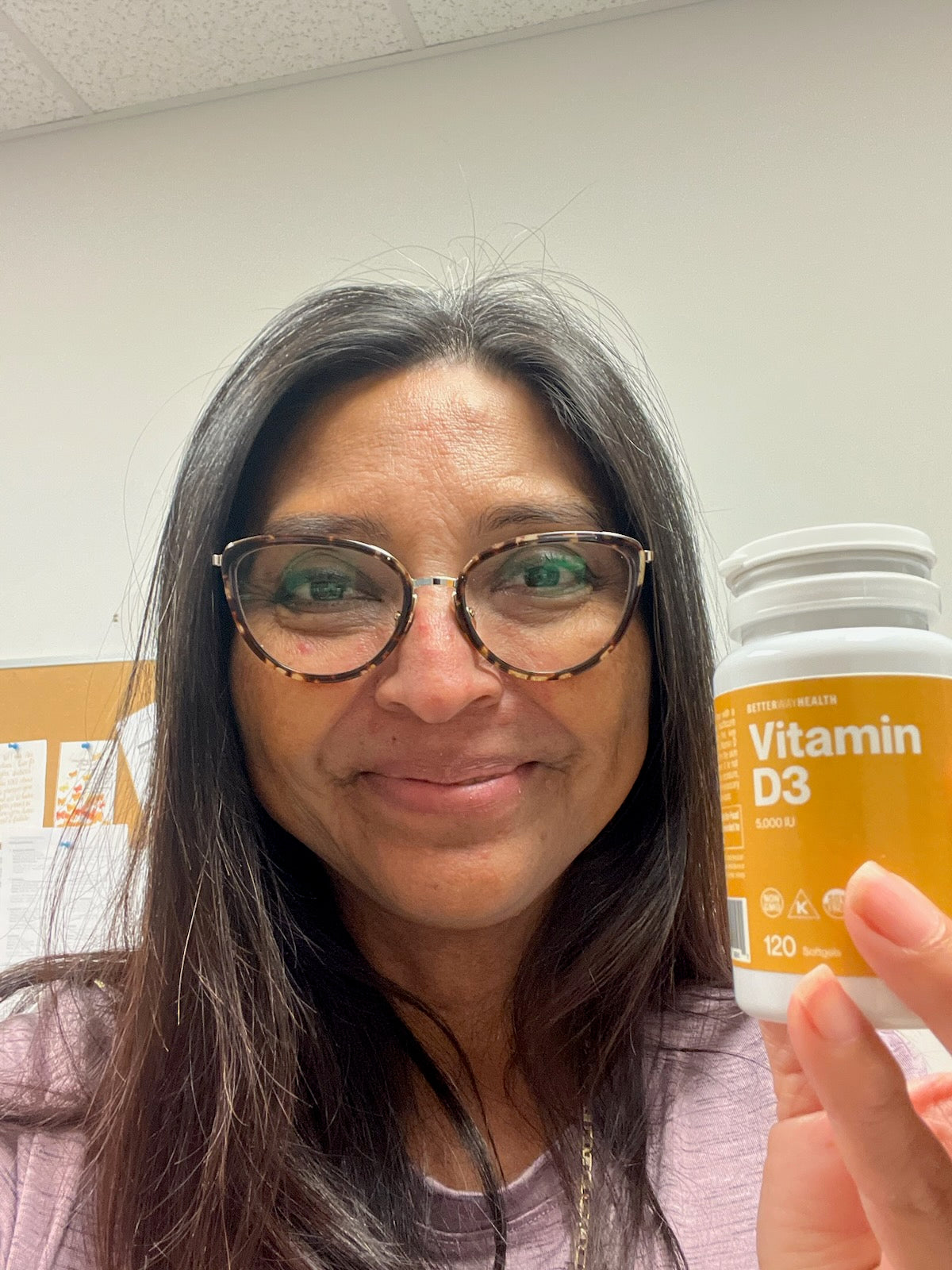

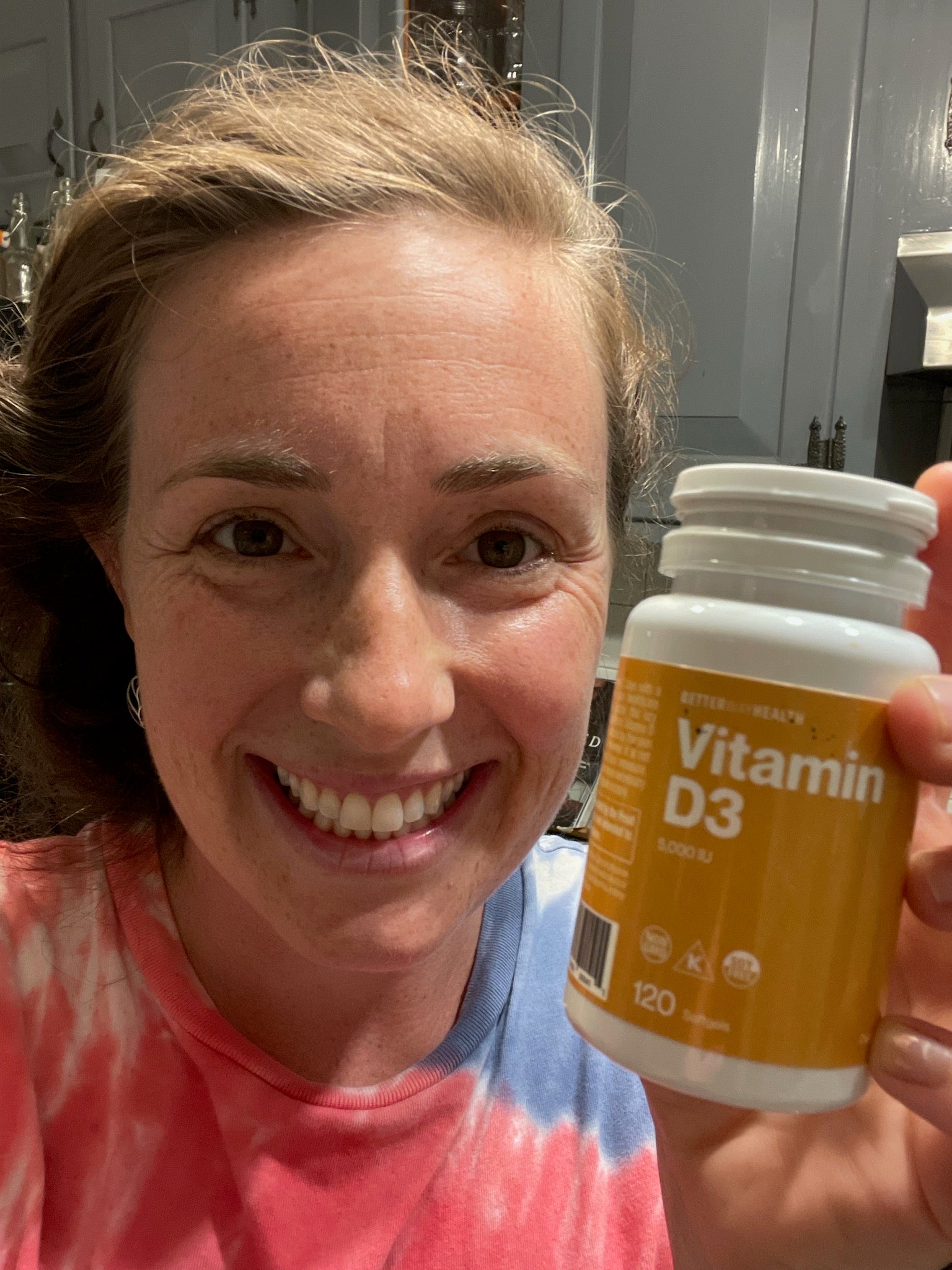
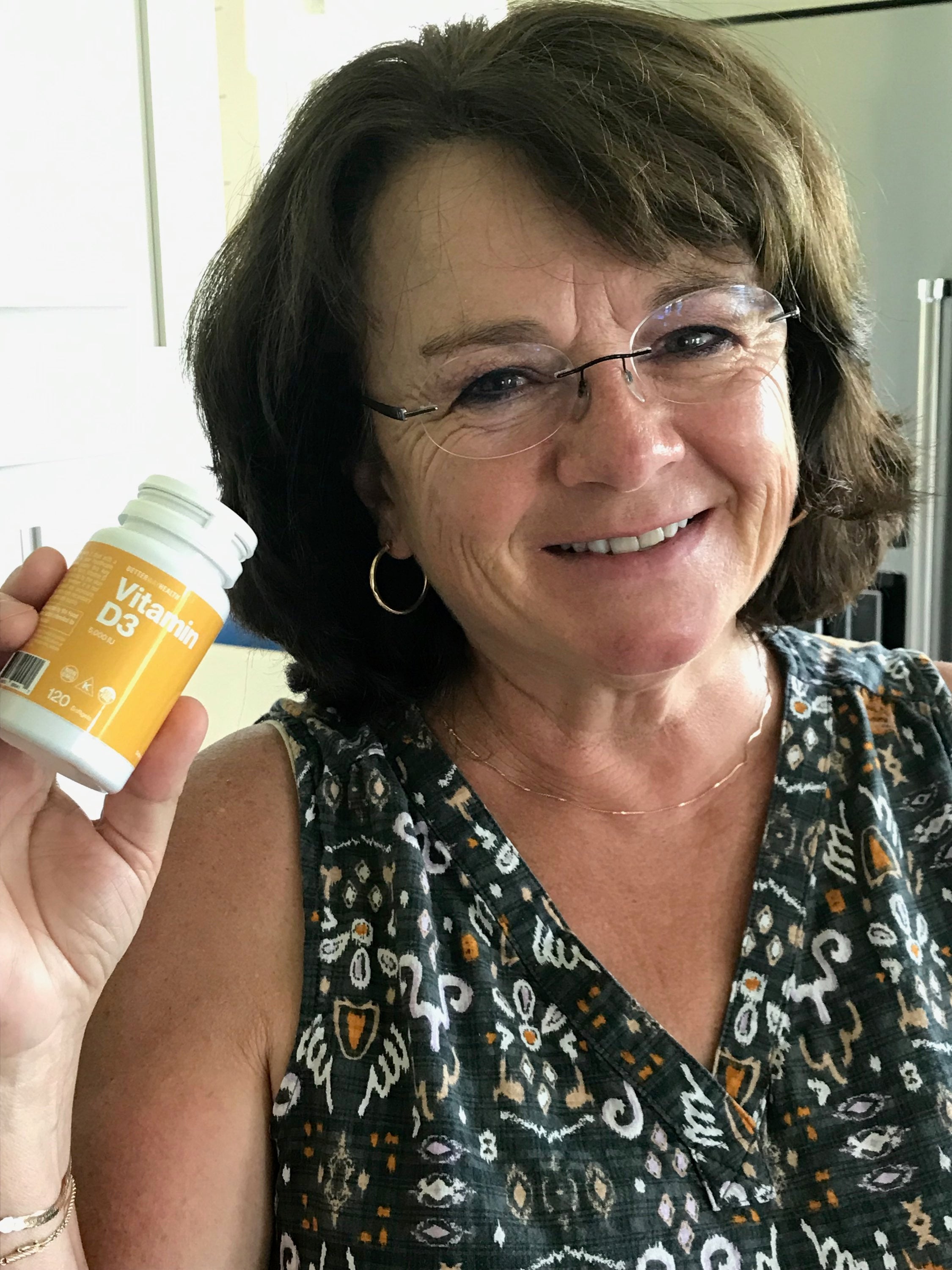
Vitamin D3 FAQ
For more information about beta glucan, Better Way Health and more, visit our FAQ page. Want to speak to an Amazing Customer Experience Specialist?
Collapsible content
What is your money-back guarantee on Vitamin D3?
We believe you’ll find our Vitamin D3 to be a valuable addition to your health routine. However, if it doesn’t meet your expectations, our 60-day, no-questions-asked money-back guarantee allows you to return it within 60 days for a full refund.
How much Vitamin D3 should I take?
There’s a lot of conflicting information out there about the amount of Vitamin D3 someone should take. As it pertains to our Vitamin D3 product, we recommend following the Suggested Usage instructions on the bottle, which are to take one 5,000 IU Softgel every day. However, some people may need more depending on your levels, which is why having your Vitamin D3 levels tested and consulting with a medical professional is extremely important.
What does "5,000 I.U." mean?
IU stands for International Units, an internationally accepted method of quantifying the biological effect you can expect from a dose of fat-soluble vitamins. You can convert between micrograms or other metric units with IU, but each form of a given vitamin will have its own conversion factor.
For Vitamin D3, the conversion rate is 40 IUs/mcg. For example if you have 5,000 IUs of Vitamin D3, divide by the conversion rate to find the equivalent in mcg: 5000 IU ÷ 40 IU/mcg = 125 micrograms per Softgel
Does your Vitamin D3 contain allergens?
Our Vitamin D3 does not contain nor is it manufactured with yeast, wheat, gluten, soy, corn, milk, egg, fish, or shellfish ingredients. However, it is produced in a GMP facility that processes other ingredients that may contain these allergens.
Can I give Vitamin D3 to my children?
The recommended dosage of our 5,000 I.U. Vitamin D3 is one Softgel Every Day for Adults. Due to the high potency of our Vitamin D3 Softgels, we recommend that you consult with your medical professional for the ideal amount to give to your child.
For a quick reference, a 2011 Study on Vitamin D3 Published in The Journal of Clinical Endocrinology & Metabolism suggests the following dosages for children:
“2.6 We suggest that the maintenance tolerable upper limits (UL) of vitamin D, which is not to be exceeded without medical supervision, should be 1000 IU/d for infants up to 6 months, 1500 IU/d for infants from 6 months to 1 yr, at least 2500 IU/d for children aged 1–3 yr, 3000 IU/d for children aged 4–8 yr, and 4000 IU/d for everyone over 8 yr. However, higher levels of 2000 IU/d for children 0–1 yr, 4000 IU/d for children 1–18 yr, and 10,000 IU/d for children and adults 19 yr and older may be needed to correct vitamin D deficiency.”
Can my pets take Vitamin D3?
Our Vitamin D3 is recommended for human consumption only.
Can I take Vitamin D3 while pregnant and/or breastfeeding?
If you are pregnant or nursing, we recommend consulting with your health care professional before use as a precautionary measure.
Notably, a 2017 Study Published in the journal Obstetrics and Gynecology International details that the risk of Preeclampsia in Pregnant Women is 2x Higher when not supplementing with Vitamin D3:
“The intended intervention (i.e., prescription of vitamin D) has a protective effectagainst recurrent preeclampsia. Vitamin D supplementation therapy in pregnancy could help in reducing the incidence of gestational hypertension/preeclampsia”
Why doesn't your Vitamin D3 contain Vitamin K2?
There is a great deal of discussion on whether or not a person needs to take Vitamin K2 with Vitamin D3. In fact, there are many claims that K2 is necessary for the absorption of D3. There really isn't a solid peer-reviewed study showing the need/benefit of taking K2 in the same supplement as D3. Most individuals get plenty of K2 in their diets and supplementation is mostly unnecessary. Additionally, research (Consumer Labs) indicates K2 should be taken at a separate time during the day (at least 3 hours apart), rather than in the same capsule or softgel with D3. We have opted to offer a high-quality, absorbable Vitamin D3 on its own, allowing our customers to choose whether or not they want to add Vitamin K2.


